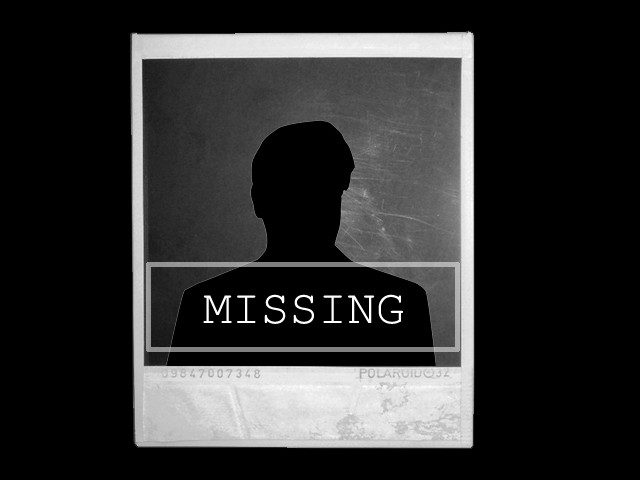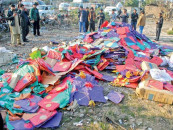Whereabouts unknown: 633 missing persons yet to be traced, court told
Of them 279 are from K-P, 148 from Punjab, 100 from Sindh, 48 from Balochistan, 26 from Fata.

Of them 279 are from K-P, 148 from Punjab, 100 from Sindh, 48 from Balochistan, 26 from Fata. DESIGN: SIDRAH MOIZ KHAN
As many as 633 missing persons, including 279 from Khyber-Pakhtunkhwa, remain to be traced, according to a report submitted in the Supreme Court on Wednesday.
Of the remaining missing persons, 148 are from Punjab, while 100 are from Sindh, 48 from Balochistan, 26 from Fata, 20 from Islamabad Capital Territory, 11 from Azad Kashmir and one from Gilgit Baltistan.
The updated report on the status of missing persons was submitted by the Commission of Inquiry on Enforced Disappearances to a two-judge bench, headed by Justice Jawwad S Khawaja.
The commission also reported that it was handed over 138 cases of missing persons in December 2010 and, so far, it has received 873 new cases of missing persons from all over the country. The total number of cases they have handled thus far is 1,011.
Out of these, the commission has traced 316 persons and deleted 47 names from the list, due to lack of details. Another 15 names were omitted because of other reasons.
The counsel for Jamaat-e-Islami’s Professor Muhammad Ibrahim told a three-judge bench, headed by Chief Justice Iftikhar Muhammad Chaudhry, that the ongoing ‘war on terror’ has left the people of K-P aggrieved by atrocities committed by both the Taliban and armed forces.

“Besides facing carnage at the hands of terrorists, the residents of Fata and K-P have also been dealing with bombing by the army and drone attacks conducted by the US,” said advocate Ghulam Nabi. Ibrahim has challenged the Actions in Aid of Civil Power Regulation, 2011, the law regulating army presence in the troubled tribal areas.
Nabi expressed these views in response to Chief Justice Iftikhar Muhammad Chaudhry’s somewhat rhetorical question: if the 2011 act was, in fact, declared unconstitutional, would there be peace in Fata and K-P?
A three-person bench, headed by the chief justice and comprising Justices Gulzar Ahmed and Sheikh Azmat Saeed, directed Nabi to submit his written response to a report submitted by the Inter-Services Intelligence and Military Intelligence that highlighted how the situation in the restive areas required the continued presence of the army.
Nabi told the bench that he not only wanted to file a written reply, but also put on record other material, such as Lt Gen (retd) Shahid Aziz’s book Ye Khamoshi Kaha Tak, Human Rights Commission reports, and different petitions filed in the Peshawar High Court that emphasised the excesses army personnel had allegedly committed.
Aziz, a former chief of general staff of the Pakistan Army, mentioned several critical missteps by the Army in his book, which generated considerable debate in court.
“What is the authenticity of the book, and the credibility of the author, when he himself remained part of the decision-making process in the fight against terror?” asked the chief justice.
To this, Nabi retorted that the author was an insider and his comments did in fact carry weight. Therefore, argued Nabi, his criticism of the Army’s decision to fight a proxy war for the US must be taken into account.
“The Americans have been bombing our areas with impunity,” said the lawyer.
Justice Saeed asked Nabi to explain how the Constitution was being violated when 2011 regulations were being acted upon in tribal areas. “The SC is not a substitute for Hyde Park. Do not use courtroom one of the apex court as Hyde Park and confine your arguments to your petition,” said the Judge.
The bench further stated that the petition regarding 11 convicted men who went missing from Adiala jail in 2010 and were later found detained in tribal areas, would not be detached from Professor Muhammad’s case as the matters were interconnected.
Further proceedings were deferred until April 3.
Published in The Express Tribune, March 28th, 2013.



















COMMENTS
Comments are moderated and generally will be posted if they are on-topic and not abusive.
For more information, please see our Comments FAQ